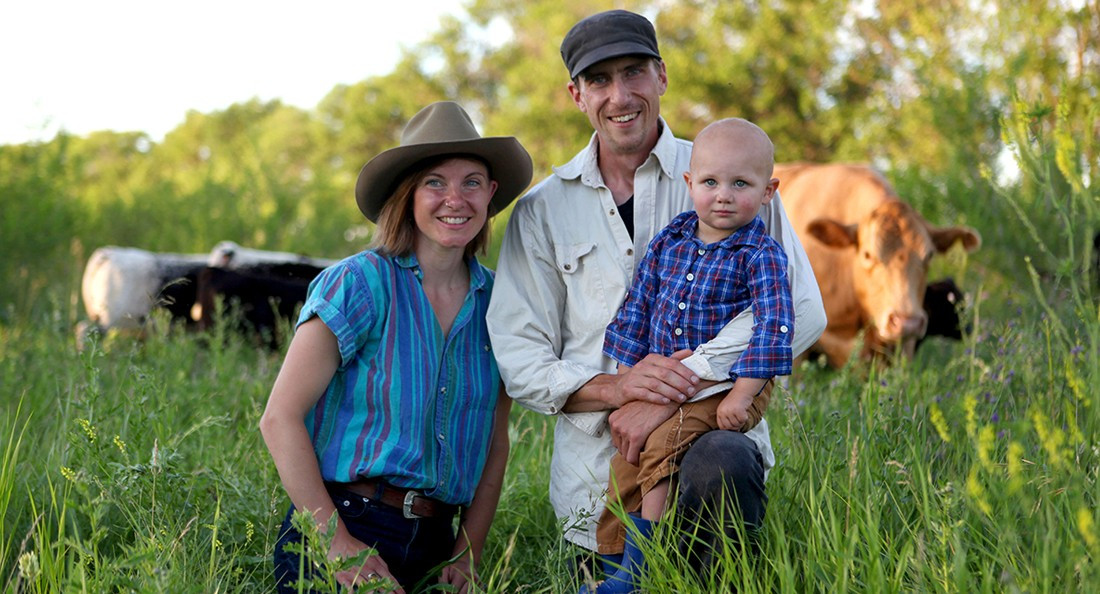Carbon-negative consumption
Manitoba farms practising regenerative agriculture
Cultural awareness surrounding food security and its relation to climate is growing, and some Manitoba farmers are choosing to make use of agricultural methods that provide an actively positive impact on their land and animals, instead of just maintaining the status quo.
Zinn Farms, owned and operated by Monika and Andreas Zinn, uses such methods on their land southwest of Winnipeg.
“The main goal is to sequester carbon into the soil by growing grass and grazing it ... and if you manage your farm well, there are farms that become carbon-negative. In other words, they sequester more carbon than they emit, including their fuel and everything,” Andreas Zinn says.
He explains that the regenerative method he uses for ruminants (grazing animals such as cows and goats) involves allowing the animals a smaller portion of the land to graze on, while moving them more often. This way, the animal does not eat only what they are initially drawn to, but all plant life within the area, and the portions of land not being grazed are given more time for regrowth. The growth and death of the root systems become the sequestered carbon.
Another farm using regenerative methods is Fresh Roots Farm, which is owned and operated by Troy Stozek and University of Winnipeg alum Michelle Schram. They describe this method as imitating the way that grasslands were naturally grazed.
“For us, it mostly takes the form of managed intensive grazing on our perennial grass and legume pastures, which mimics the way bison herds roamed on our grasslands long ago: moving frequently in larger groups, providing adequate recovery on a piece of land before returning to graze it again. The animals used to be moved in this way by predators. Now, with our domesticated ruminant animals (like cattle and sheep), we use electric fencing to keep them where we need them to be,” Schram says.
She says it’s necessary to have a relationship with the land and understand the implications of climate on agriculture for the future.
“We try to be observant of what is happening on our land and adapt what we are doing from week to week, season to season, instead of being prescriptive,” she says. “Nature likes disruption, and we have to learn to play her game instead of fighting against it.
“I think a lot of (agricultural) producers are seeing how we need to be a lot more resilient in the face of our climate change reality, and this will mean making some changes if we want our land and businesses to stay viable. We’d really love to have a viable, thriving land base and business to be able to pass along to the next generation, our kids or otherwise.”
Both Zinn Farms and Fresh Roots Farm supply local restaurants, are regulars at the summer farmers’ markets and supply to independent buyers through their online order systems.
“All of our products are available through our online store” Schram says. “We do monthly deliveries into Winnipeg where we meet up with customers at four different locations throughout the city.”
Zinn Farms uses similar distribution methods.
“We do the St. Norbert Farmers’ Market on Saturdays throughout the winter, and we do private sales through our website, and we have drop locations in Winnipeg.”
For info on how and where to buy from Fresh Roots Farm, visit freshrootsfarmmb.com. Find Zinn Farms at zinnfarms.com.
Published in Volume 74, Number 8 of The Uniter (October 31, 2019)







